Feasibility of Slave-Free Chocolate: An Analysis of Ethical Practices
VerifiedAdded on 2022/08/24
|6
|1100
|25
Report
AI Summary
This report delves into the pervasive issue of child labor within the chocolate industry, particularly in West African countries like Ivory Coast and Ghana, which supply a significant portion of the world's cocoa. It highlights how major chocolate companies, including Nestle, have been implicated in benefiting from this unethical practice. The report also addresses the economic disparities faced by African cocoa farmers, who earn disproportionately little compared to the substantial profits generated by the chocolate industry, leading to deforestation and other environmental issues. Initiatives by companies like Mars and Barry Callebaut, along with governmental efforts to set premium prices for cocoa, are discussed as potential solutions. The report further examines Tony's Chocolonely, a Dutch company known for its commitment to fair trade practices and ethical chocolate production. It emphasizes the importance of consumer awareness and support for companies that prioritize ethical sourcing to combat child slavery in the chocolate industry, suggesting actions such as stricter government regulations, increased fines for companies using child labor, and awareness campaigns to promote ethical consumption.
1 out of 6
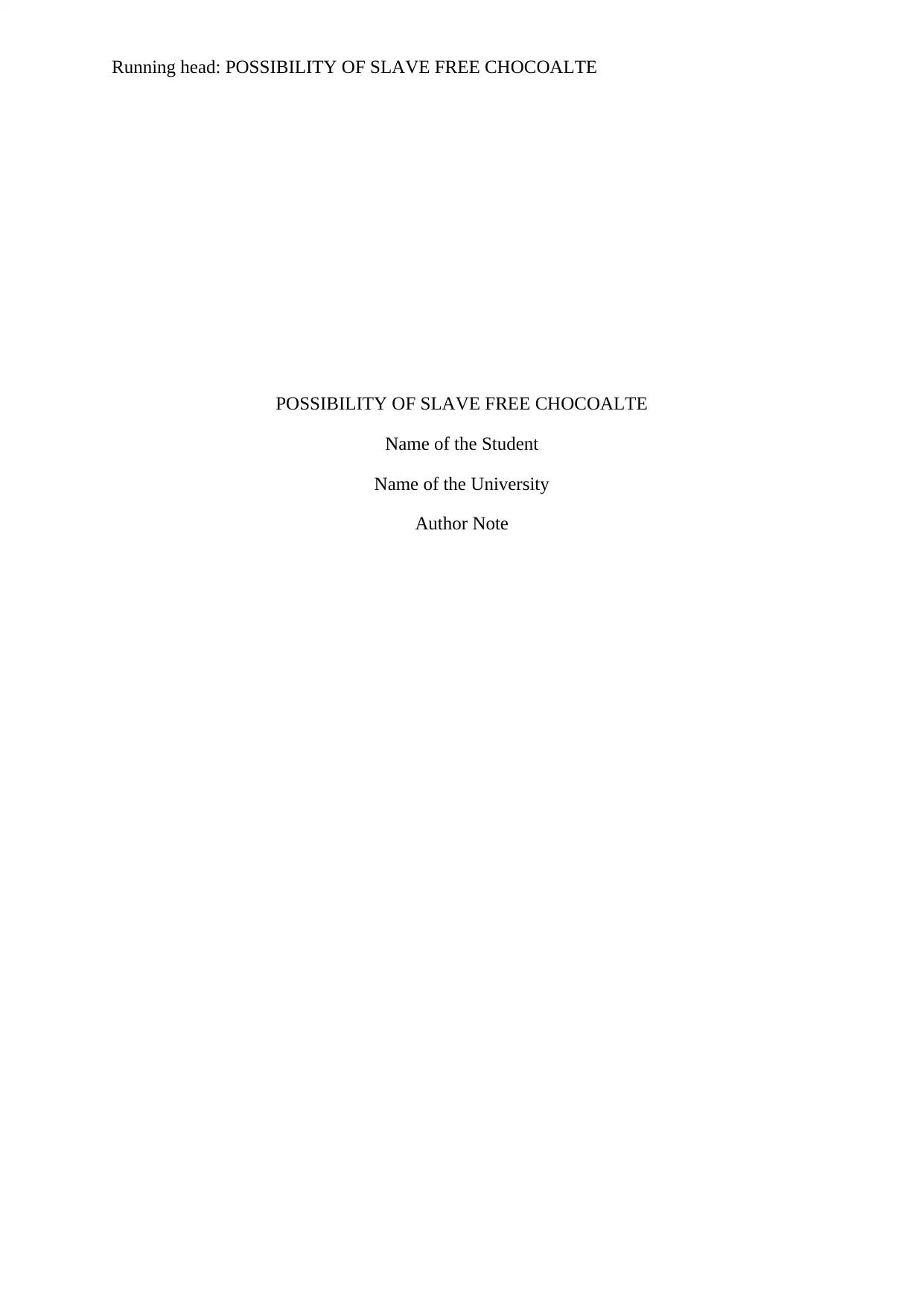
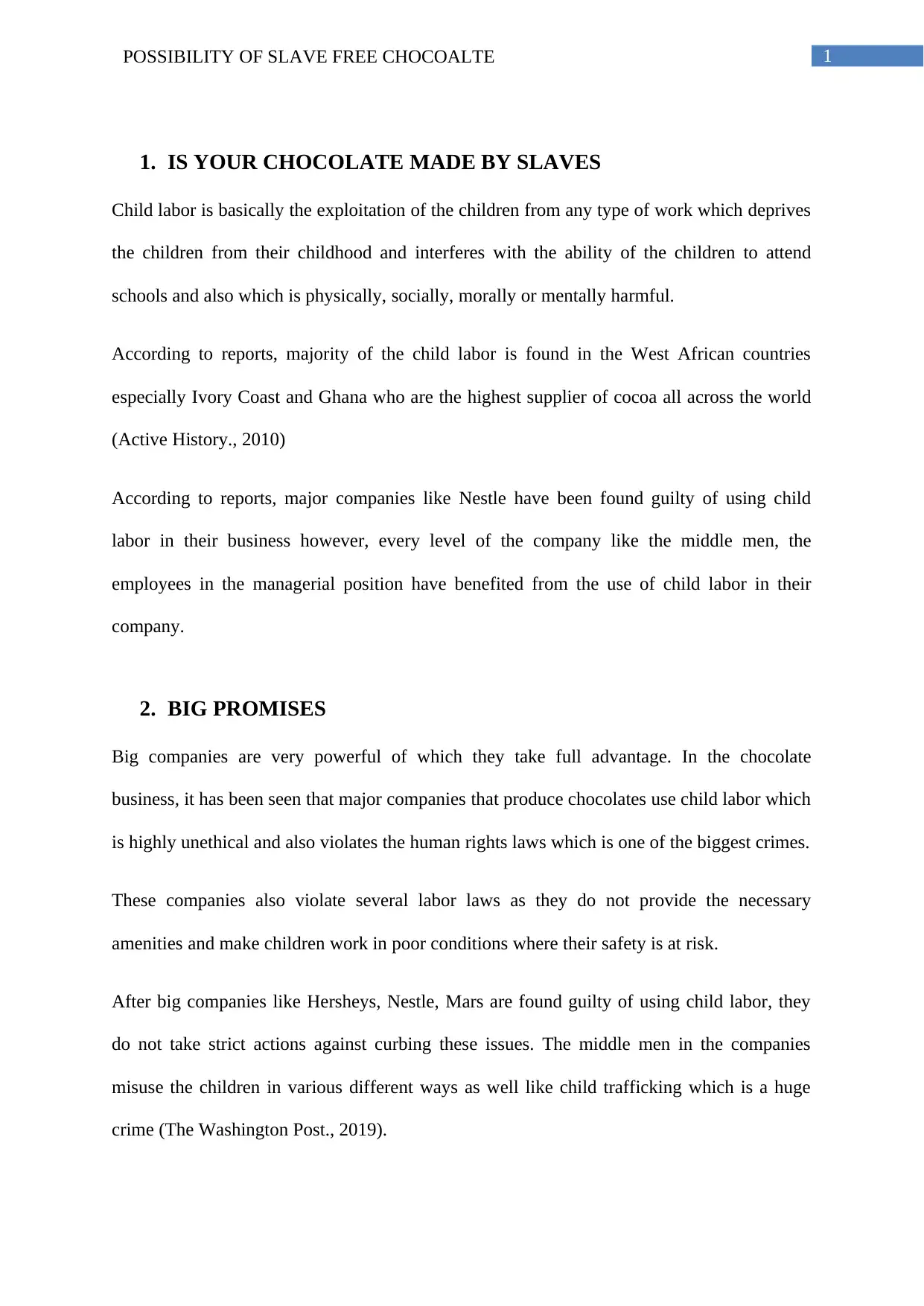
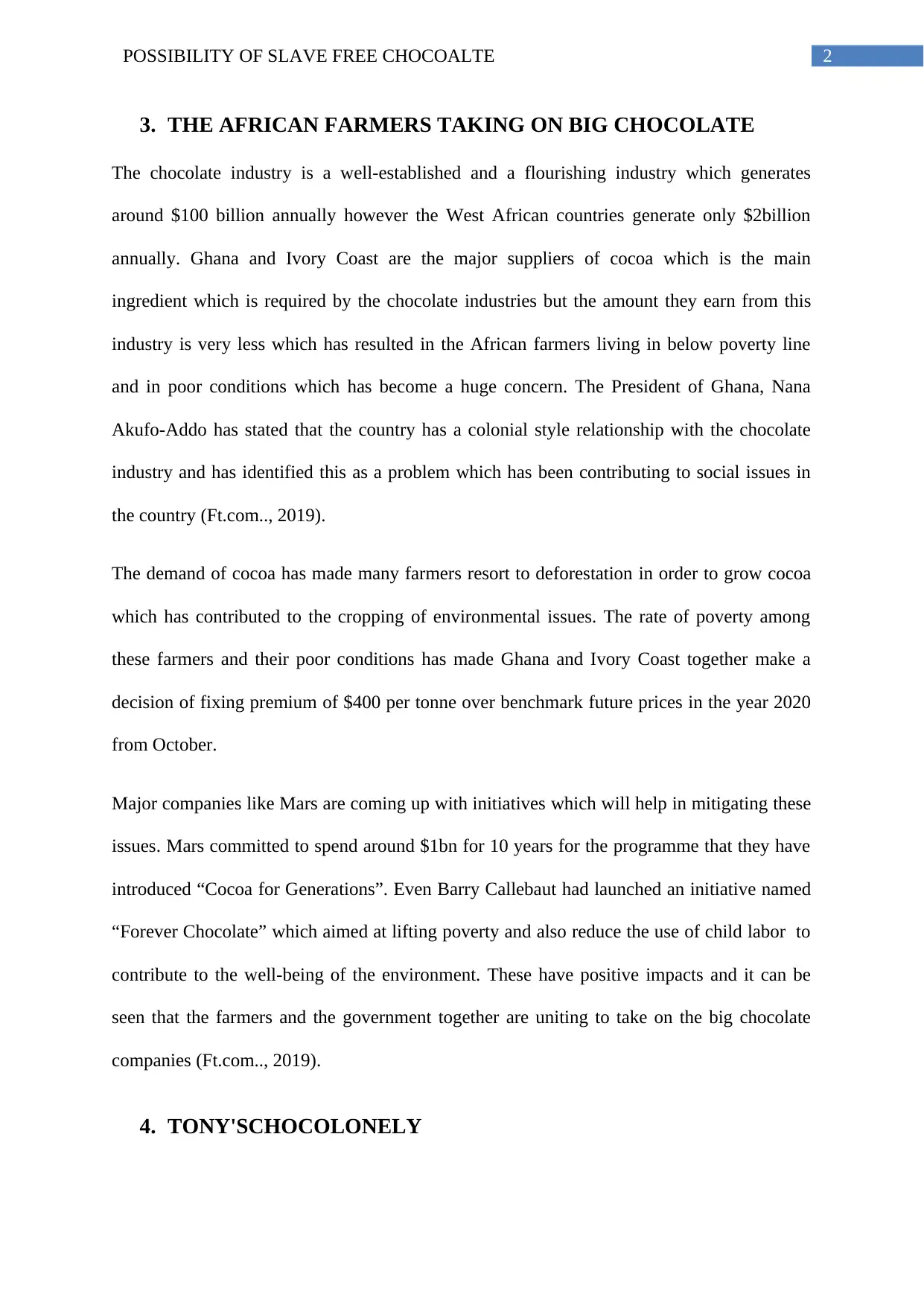

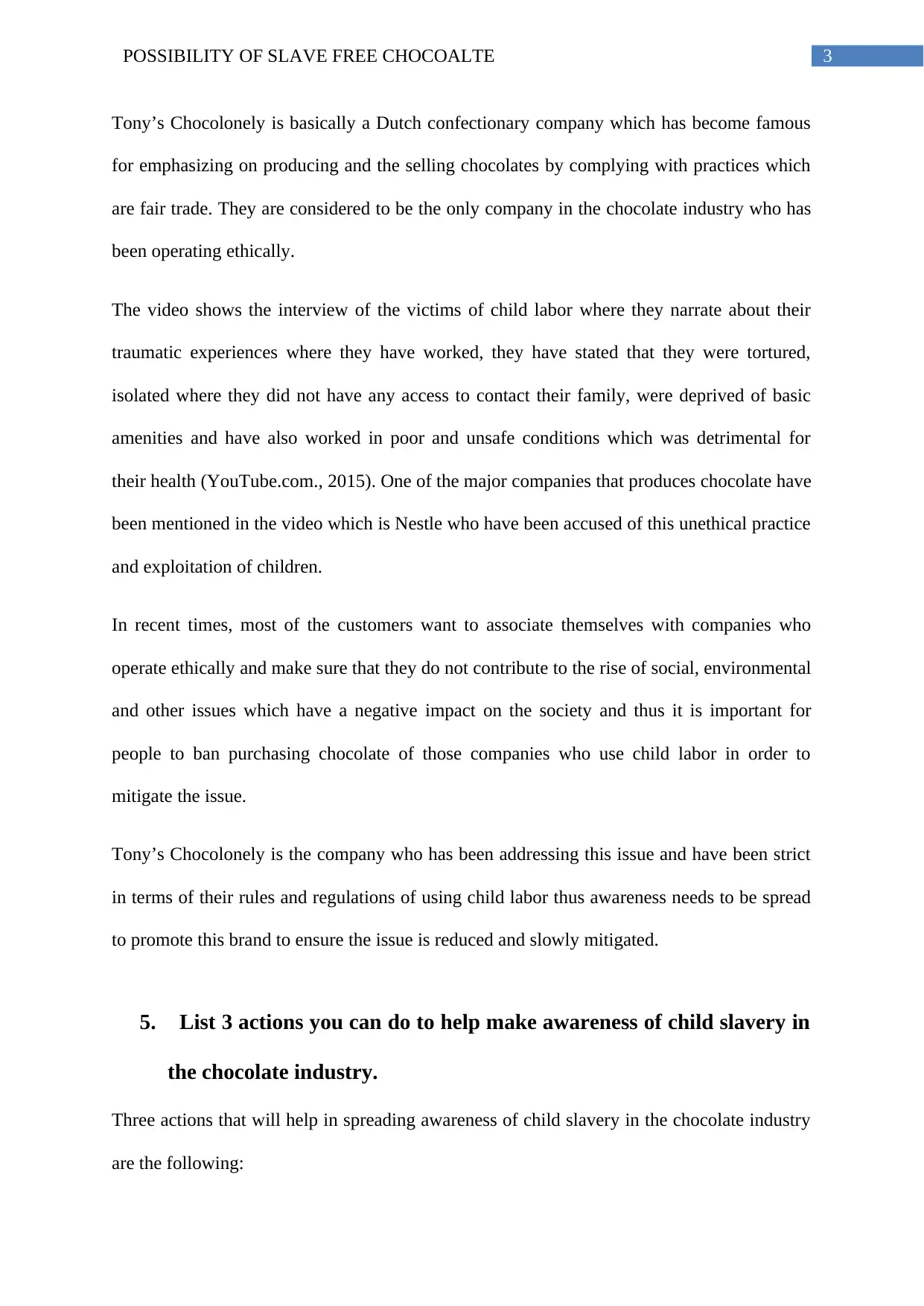

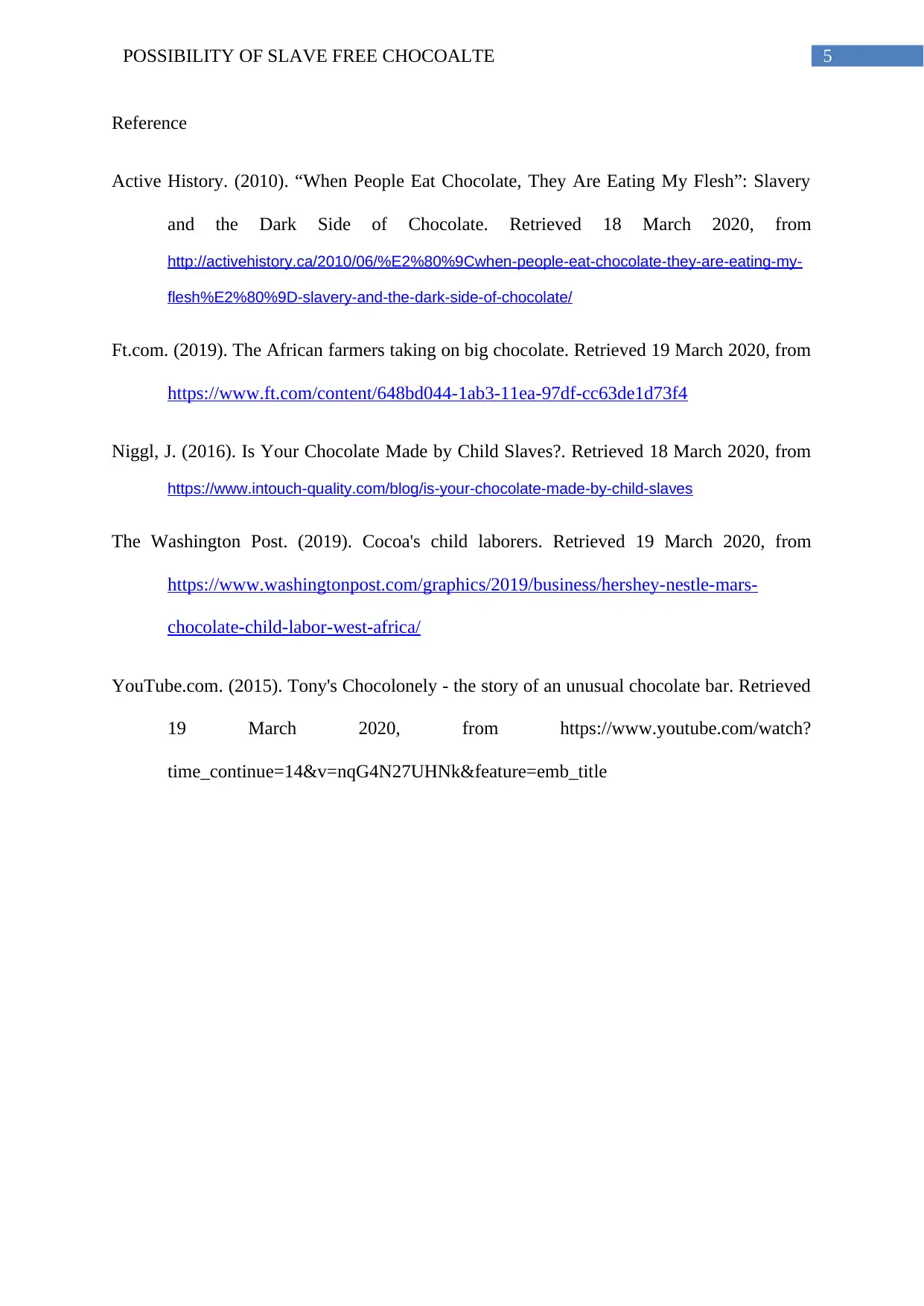






![[object Object]](/_next/static/media/star-bottom.7253800d.svg)